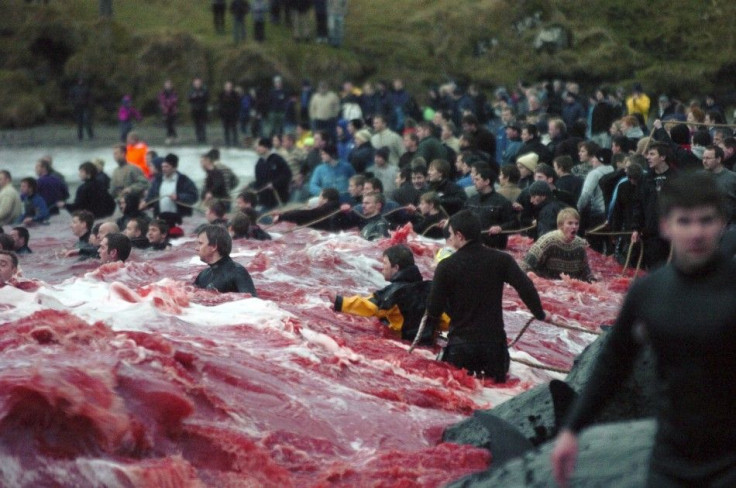Save Whales by Hunting Them? New Controversial Proposal

In an unexpected pitch, a trio of whale conservationists proposed Thursday the previously unthinkable to protect the world's largest creatures: Put a price tag on whales to save them.
Whale hunting became outlawed internationally 25 years ago, though Norway and Iceland defy the law and Japan still hunts some whales, it says for research purposes.
Even so, hunters kill 1,600 whales each year mainly for minke oil and their fins, plus indigenous hunters kill an additional 350 whales, according to a report from Wired Science.
We propose an alternative path forward that could break the deadlock: quotas that can be bought and sold, creating a market that would be economically, ecologically and socially viable for whalers and whales alike, the authors wrote in an article published Thursday in the journal Nature.
The authors include Christopher Costello and Steve Gaines, professors of economics and marine science at the Bren School of Environmental Science and Management at the University of California, Santa Barbara, plus Leah Gerber, a population ecologist and marine conservation biologist at Arizona State University.
The proposal is similar to cap and trade models to reduce pollution and carbon emissions. Under the proposed system, whalers could still make a living by being paid by conservationists for not hunting the species or whalers could buy into shares for harvests that would keep whale populations at a sustainable level.
Because conservationists could bid for quotas, whalers could profit from them even without harvesting the animals, the researchers said.
Not everyone agreed, beyond whale hunters themselves.
The authors have the premise wrong, Hal Whitehead of Dalhousie University in Nova Scotia, a whale biologist since the late 1970s, told Wired Science. The division between the pro- and anti-whaling factions is not fundamentally over an environmental difference, it is over a philosophical one. Are whales 'persons' who should be treated as persons, or are they resources?
Trading resources is fine, and although those on that side might quibble about features of the proposed system, it could work. Trading persons is basically slavery, although in this case rather worse than slavery, as the slaves, once bought, are to be killed.
Currently, conservatinoists spend an estimated $25 million in protecting whales.
© Copyright IBTimes 2025. All rights reserved.





















